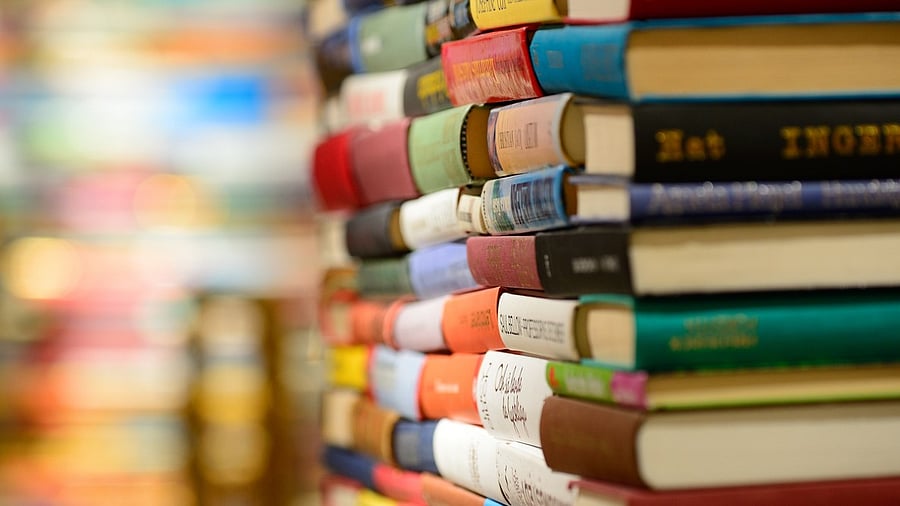
Representative image of books.
Credit: iStock
The recent government order banning selected books in Jammu and Kashmir, followed by police raids on Valley bookshops to enforce compliance, has drawn criticism from democratic-minded citizens and the targeted authors themselves — with the only exceptions being those aligned with right-wing politics.
Issued under the authority of Lieutenant-Governor Manoj Sinha, the government claimed that these works were spreading "a false narrative and secessionism in Jammu and Kashmir.” The order alleged that such books “deeply impact the psyche of the youth by promoting a culture of grievance, victimhood, and terrorist heroism,” holding them responsible for "radicalisation, distortion of historical facts, glorification of terrorists, vilification of security forces, religious radicalisation, promotion of alienation, and a pathway to violence and terrorism.” All these charges have been firmly denied by the authors.
The banned writers have rejected these sweeping accusations, defending their scholarship and denying any role in promoting secessionism or violence. Sumantra Bose, whose book, Kashmir at the Crossroads, was among those banned, expressed surprise: “When you look at the 25 books, there's a relatively diverse range of authors. The common thread is that none of them align with the Hindu nationalist narrative or the government's stance on Kashmir—and that is what unites them.” Anuradha Bhasin, editor of Kashmir Times and author of Dismantled State, warned that such prohibitions will have lasting repercussions for future publications concerning Kashmir. “Publishers will hesitate before releasing anything critical about Kashmir... The ban is part of a calculated strategy to erase historical narratives and alternative perspectives,” she said.
While authors spoke out, their publishers remained conspicuously silent. India’s major publishing houses, which have long benefited from the scholarship of these writers, have not protested the ban on their books. There were no public statements of support, no tweets, and not even token solidarity. Weeks after the ban made headlines, mainstream publishers, who had published some of these banned books, maintained a calculated silence. Their refusal to engage spoke volumes about the sorry state of Indian publishing.
Among the banned titles are works by eminent writers and scholars such as the late A G Noorani, Sumantra Bose, Christopher Snedden, Victoria Schofield, and Hafsa Kanjwal. All of them have engaged with Kashmir through rigorous research and nuanced analysis. These books, published by established and independent presses alike, challenge the simplistic narratives propagated by the State.
In refusing to defend their authors or question the legitimacy of the ban, publishers become complicit in attempts to silence critical voices and stifle honest debate about government policies. This silence is not unprecedented. Indian publishers have often lacked the courage to stand by their authors when State agencies seek to suppress inconvenient voices. A telling example is Penguin India’s reaction to Wendy Doniger’s The Hindus: An Alternative History, published in 2014. Despite the book’s scholarly acclaim, Hindu right-wing groups condemned it for “distorting” Hindu culture. Following a lawsuit citing Indian laws against offending religious sentiments, Penguin India caved under pressure and pulped all remaining copies. Publishing houses frequently prioritise business interests over protecting intellectual freedom and defending independent scholarship.
Every time publishers remain silent on book bans, authors grow more vulnerable to threats and censorship. The broader academic and literary community is thus discouraged from researching or writing about sensitive topics. A chilling effect takes root, steadily eroding independent scholarship.
There is another layer to this irony. Many of the same publishers who fail to support critical voices also publish and aggressively market works aligned with government policies. Penguin Random House India, for example, recently released a book, 370: Undoing the Unjust, and marketed it as a “definitive account of how Article 370 was abrogated”, framing it as an authoritative “inside story” that highlights the supposed benefits of dismantling Kashmir’s autonomy. Other major publishers have also published titles amplifying the government’s narrative on Jammu and Kashmir.
The suppression of dissenting books sends a clear message: only works that promote government talking points may remain on bookshelves, while critical titles risk enforced disappearance. Books deemed “anti-national” are removed from circulation, while those that reinforce state narratives are selectively promoted.
Publishing houses cannot retreat into neutrality and silence to escape their responsibilities to their authors and readers. Their choices — whether to remain silent or to resist frequent government bans — carry significant consequences for freedom of expression. Silence is not an apolitical or neutral act; it enables and legitimises further censorship.
These publishers initially rely on critical voices to build their prestige and catalogues but abandon them when the State cracks down. Their commitments to defend free speech prove to be hollow under scrutiny. Writers are thus left alone, and banned books become symbols of stifled discourse. What prevails is a corrosive culture of enforced silence.
Will publishers reflect on their roles and ask themselves: are they mere commercial enterprises producing products, or do they have a greater responsibility as custodians of ideas, arguments, and scholarship essential to a thriving literary culture and civilised society? Should they reduce themselves to mere conduits of government propaganda or speak up whenever ruling governments silence their writers and remove selected books from bookshelves? Ultimately, will they continue to let the argument of power triumph over the power of argument?
(The author is an independent journalist and writer based in Kashmir)
Disclaimer: The views expressed above are the author's own. They do not necessarily reflect the views of DH.